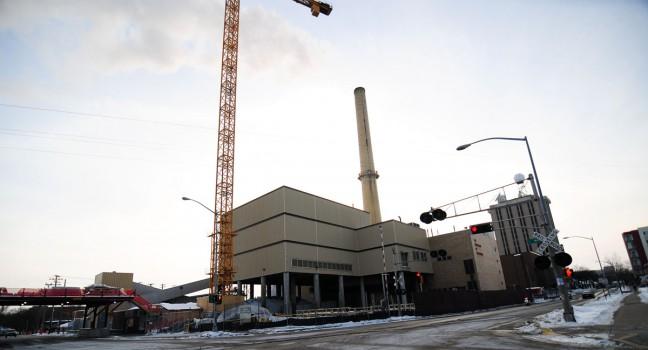The first round of approvals needed to start construction on a $700 million natural gas power plant recently passed in the Wisconsin Public Service Commission.
The plant will be located in Superior, Wisconsin, on the shores of Lake Superior, and will be jointly owned by the power companies Dairyland Power Cooperative in La Crosse, Wisconsin and Minnesota Power in Duluth, Minnesota, according to the Associated Press.
The AP also reported the approval of the plant has been controversial because of its size, cost and feared environmental impact. Since the plant is producing energy through natural gas rather than coal, some believe it is a positive change from traditional coal-based power plants, according to the AP.
Plants based in natural gas energy rather than coal are proven to produce half as much carbon dioxide, according to the AP. The same story noted due to the size and power output of the plant, there are fears it could do more harm than good, though.
The mining and transporting of natural gas can result in more heat-trapping gasses that could prove harmful to the environment, according to the U.S. Energy Information Administration website.
“Natural gas production can also produce large volumes of contaminated water,” the website says. “This water requires proper handling, storage, and treatment so that it does not pollute land and other waters.”
The proposed power plant, named Nemadji Trail Energy Center, was approved by tight margins as conservationist groups and individuals opposed the plan, including the Public Service Commission Chairperson Rebecca Valcq, who was outvoted 2-1. Valcq explained there may be undue environmental impacts.
“My vote is not a referendum on natural gas as a fuel source,” Valcq said. “In my view, the record demonstrates that neither the preferred nor the alternate site are in the public interest because both present undue environmental impacts.”
Valcq is a veteran in the clean energy industry with previous experience serving on the Regulatory Counsel for Wisconsin Electric Power Company and the Committee on Water, among others.
Though Valcq was outvoted in Wisconsin, regulators still do not have the full approval in Minnesota appeals courts.
According to the AP, since the plant will be built in Wisconsin, it is not necessary for Minnesota Public Utilities Commission to complete an environmental review for possible adverse environmental consequences. The Communications and Legislative Director at Public Service Commission of Wisconsin, Matthew Sweeney, said public input will still be heard.
“Our process invites public input from interested parties or intervenors like conservationists,” Sweeney said.
On the other hand, Dairyland Power Cooperative, a 50% owner in the Nemadji Trail Energy Center, is more optimistic about the results the power plant could produce.
Katie Thomson, a corporate communicator for Dairyland Power, has a different name for the natural gas plant, referring to it as a combined cycle natural gas plant which is a renewable energy enabling resource.
Thomson said Dairyland Power supports clean energy, and the purpose of this new plant will be to stand in as a reliability component when wind cannot propel windmills and sun cannot power-up solar panels.
“When the wind doesn’t blow and the sun doesn’t shine the Nemadji Trail would be able to ramp up … and fill in those gaps so that we ensure that people have the light and heat and power that they need,” Thomson said.
Sweeney explained the Superior site has been in consideration for a natural gas project for about ten years with smaller and different styles, but previous plans never broke ground.
Sweeney added to fully approve the current plan for the Nemadji Trail Energy Center, it requires a multi-year process within both Wisconsin and Minnesota state governments.
Though the plan does have many conservationists fighting against the final approval, Sweeney said local elected officials and electrical trades in Superior, Wisconsin were supportive of building a new power plant in the area.
The debate continues on whether the benefits outweigh the costs. While Thomson said the Nemadji Trail Energy Center would emit 65% less carbon dioxide than a similarly sized coal facility, Sweeney noted Valcq’s concerns.
“There was sufficient evidence in the record to demonstrate to her [Valcq] that the project was not in the public interest because of the undue environment impacts,” Sweeney said.


